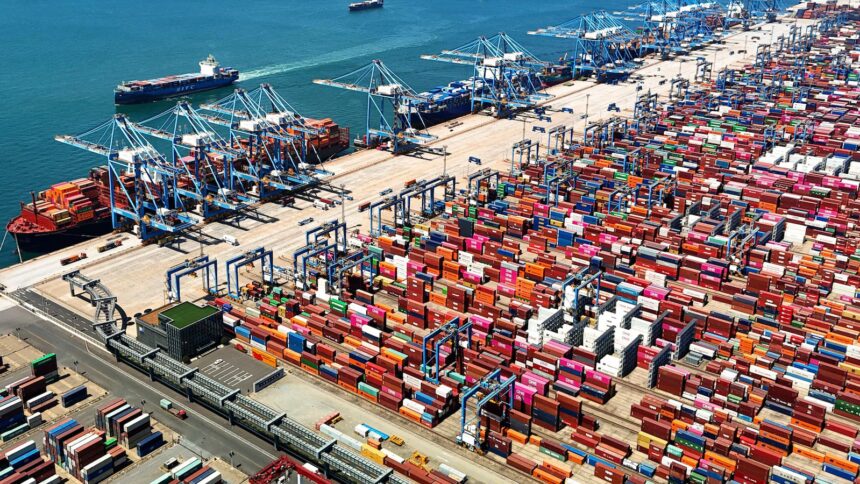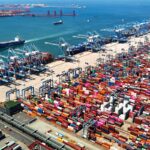In a stark response to mounting trade tensions, China declared on Sunday that it would not yield to threats of a 100% tariff from President Donald Trump, reiterating its preference for negotiation over confrontation. The statement from the Chinese Commerce Ministry, released online, emphasized the country’s consistent position against escalating tariffs, stating, “We do not want a tariff war but we are not afraid of one.”
This declaration came shortly after Trump threatened to impose significant tariffs on imports from China by November 1, following new Chinese regulations on the export of rare earth elements. These materials are essential for a variety of consumer and military technologies, highlighting the stakes involved in the ongoing trade discussions. The increasing pressures could jeopardize a potential meeting between Trump and Chinese President Xi Jinping, casting doubt on the fragile truce that had momentarily eased tariff hostilities that previously surged above 100%.
Trump’s administration has implemented various tariffs on imports from numerous trading partners this year, aiming to leverage economic strategies that compel concessions and adjustments from those countries. However, China’s stance has remained steadfast, leveraging its economic power to resist compliance with U.S. demands.
In its public statement, China critiqued the frequent reliance on tariff threats as an ineffective approach for fostering positive relations, advocating instead for direct dialogue to resolve differences. “If the U.S. side obstinately insists on its practice, China will be sure to resolutely take corresponding measures to safeguard its legitimate rights and interests,” the ministry warned.
Both nations have increasingly accused one another of undermining the terms of the truce, each imposing new trade restrictions. Trump has characterized China’s actions as “very hostile,” claiming that the country is leveraging its control over rare earth elements to hold the global market captive. China’s recent regulations mandate that foreign companies must obtain special approval to export goods containing even minor amounts of rare earth elements sourced from China, further complicating trade dynamics.
These rare earth minerals, vital for technologies ranging from jet engines and radar systems to consumer electronics such as laptops and smartphones, are dominated by China, which accounts for nearly 70% of global production and controls around 90% of processing capacity. This pivotal role makes access to these materials a critical aspect of ongoing trade negotiations.
The Chinese Commerce Ministry affirmed that it would grant export licenses primarily for legitimate civilian applications while acknowledging the minerals’ military significance. Additionally, the ministry pointed out that the United States has recently intensified its restrictions, expanding the number of Chinese enterprises subject to export controls and ignoring China’s concerns over new port fees on Chinese vessels set to take effect soon. In retaliation, China announced its plan to implement port fees on American ships, further escalating the trade conflict.
As tensions rise, the path forward remains uncertain, with both nations shoring up their positions in the face of increasing tariffs and regulatory confrontations.








